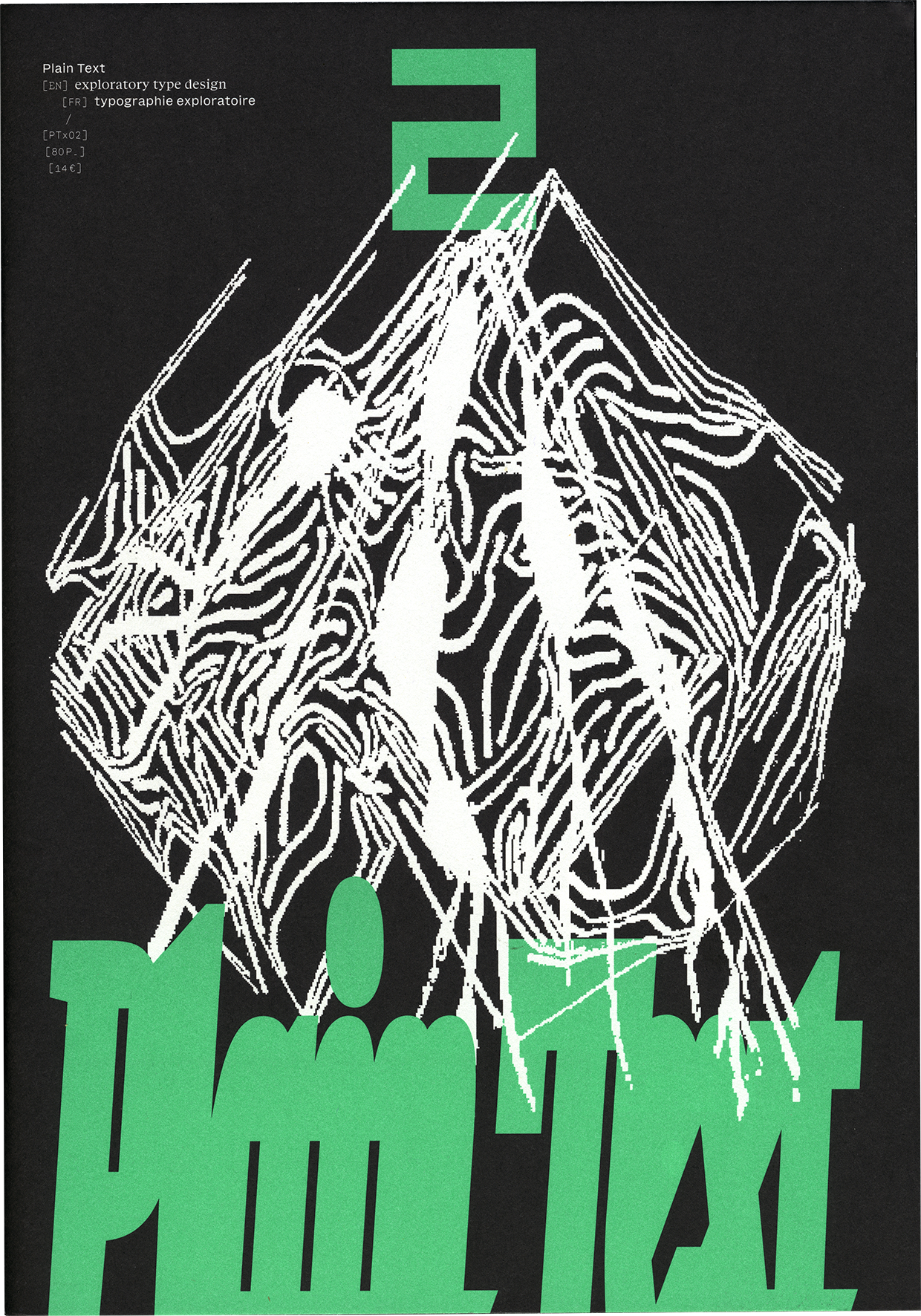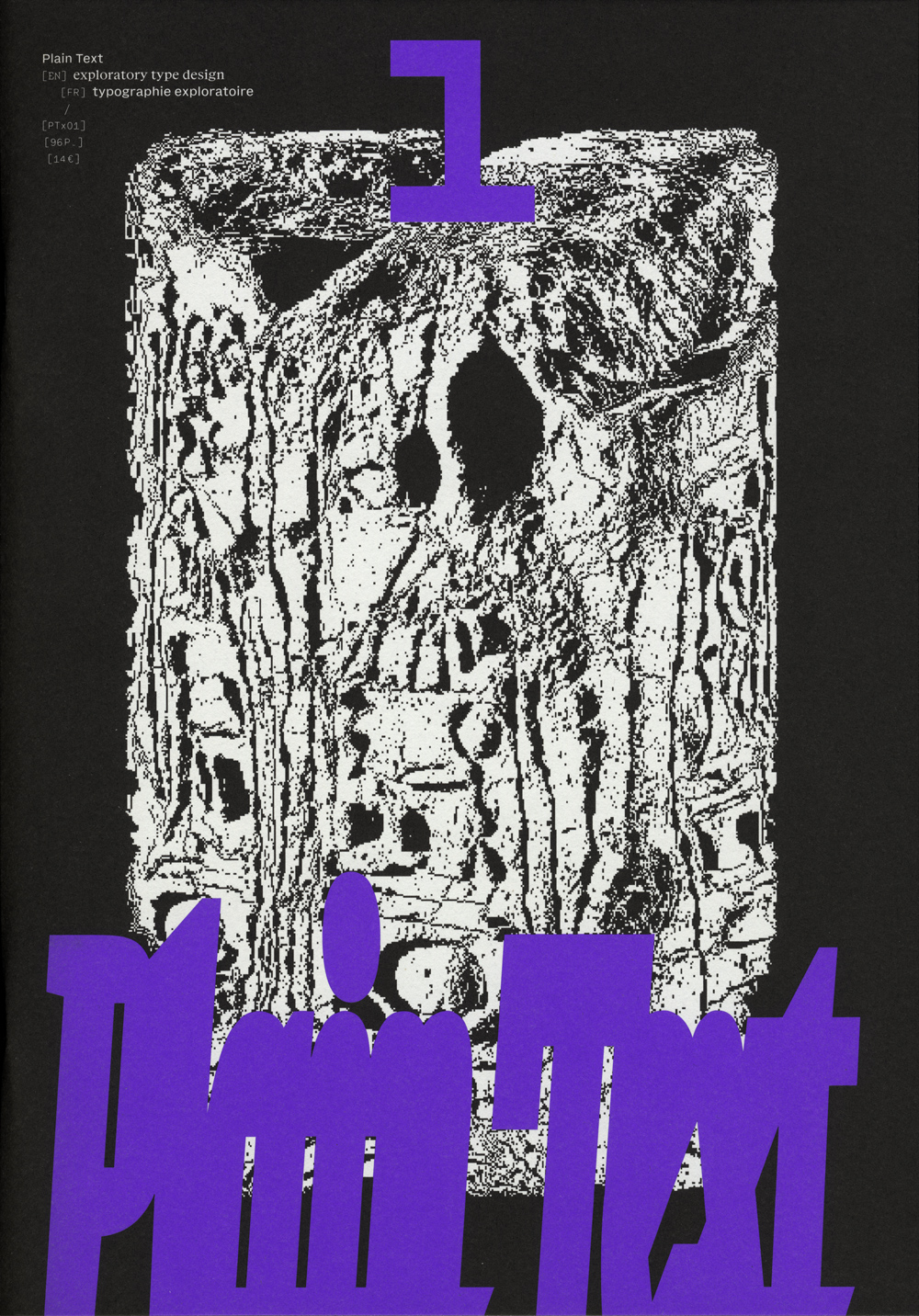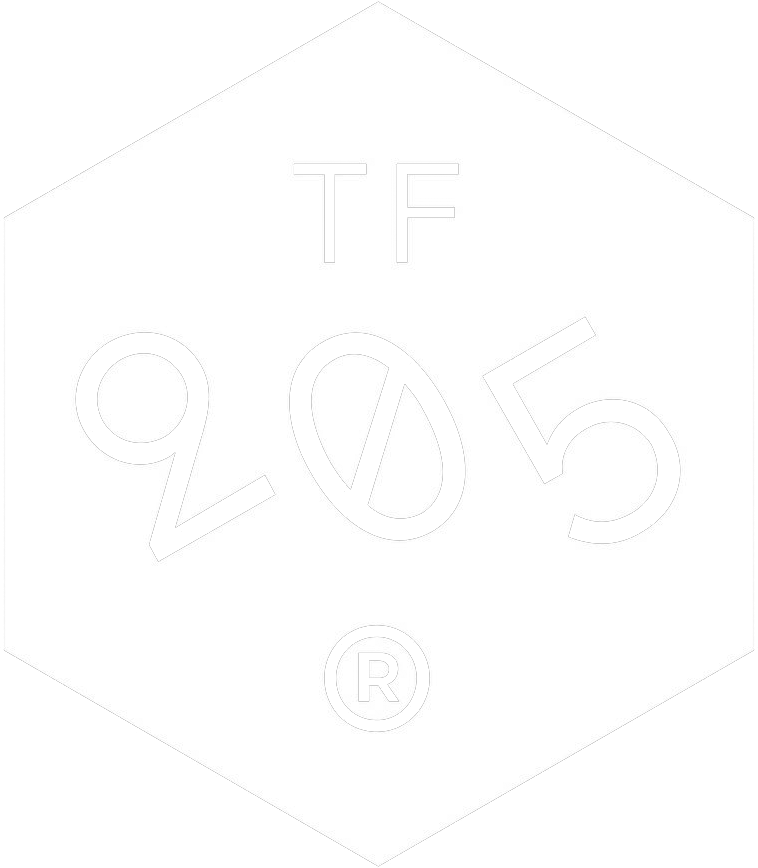
[ Plain Text ] (English + French)
\/
a semi-annual publication for exploratory type design
\
(by Plain Form)
From fiction to theory, from mystical analyses to visual works, Plain Text aims at exploring typographic imaginaries, moving beyond a strictly historical and technical framework, with a taste for the unknown and the dormant potential of writing.

(July 2025)———(14€)
[210 × 297mm]
[ISBN 978-2-9597254-1-8]
-
Writing Beyond the Latin Empire
Tim Brookes from Endangered Alphabets explores the alterity of writing systems.
-
Of metal and mold
Non-static letters from Aliona Ciobanu and Alec Vivier-Reynaud.
-
Emergent realities
Inner dialogue from the collective behind the Inscript festival.
-
Serif Obscura
Benjamin Dumond looks at cinema for typographic concepts.
-
Constellating typography
A dialectic view on type design by Marcus Leis Allion.
-
Server the signal
Simon Renaud creates a dialogue between inspirations and research.
-
Droplets
A short fiction by Mardi Forestier, where variations infuse meaning.
-
Expanding territories
Conversation with Hervé Aracil: teaching, invention and Gilles Deleuze.
-
Risky pedagogy
Exploratory works from HAW Hamburg, with Pierre Pané-Farré.
-
Ants, spiders and bees
Different ways of dealing with historical sources by Lucas Descroix.

(Jan 2025)———(14€€)
[210 × 297mm]
[ISBN 978-2-9597254-0-1]
-
Family Business
Lucas Descroix views type families through parables.
-
Trust the Process
A dive into Anne-Dauphine Borione’s energetic letters.
-
Legend of the Printer’s Devil
Printing might be pure evil, according to William Skeen.
-
Shape of a Thousand Universes
Eager Zhang’s poetic outlook on type and languages.
-
Asemic What?
A conversation with Stefan Ellmer about (non-)sense.
-
Emomania
Ayasha Khan explores the border between text and images.
-
Type as a Labyrinth
What Benjamin Dumond means when he says “experimental”.
-
Atlas
Non-verbal links in a well-arranged array of images.
-
Weavings
Zuzana Licko brings type design mechanisms into other fields.
-
One Last Request
Fonts destroy the world, by Verso Wurm, illustrated by Arman Mohtadji.
-
Ancient Mysteries of Writing
Archeologist Kirsten D. Dzwiza on letters and ancient magic.
-
Express Exegesis
Reading intentions and building bridges between typefaces.
Support
Plain Form is an association whose aim is to spread conceptual and visual research in the fields of typography, writing forms and graphic design, to bring historical knowledge to the public's attention, and to highlight and encourage contemporary production. If you would like to help us, please donate.
Support(via HelloAsso)
You are a type foundry? A cultural or private organization? You would like to support research and independent production in typography by sponsoring the magazine? Get in touch: text@plain-form.com.
The latest issue of Plain Text was kindly supported by:

